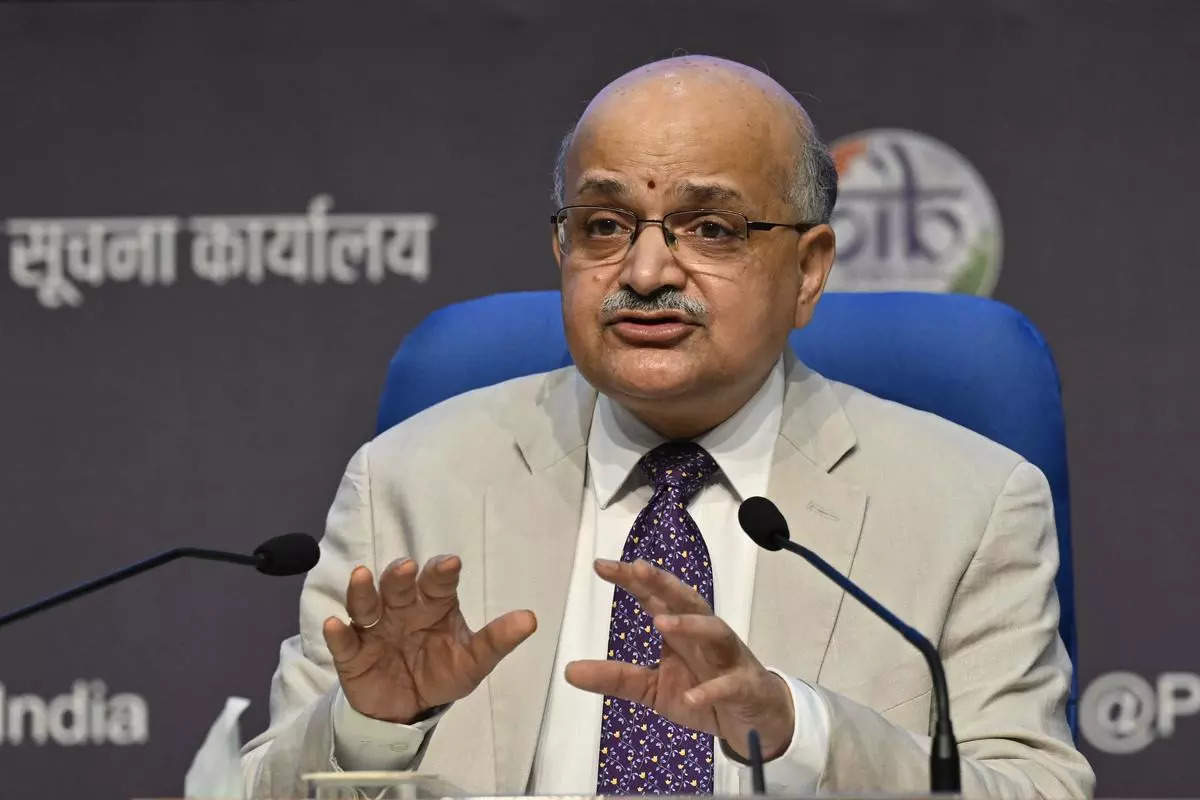
Gaya: Bihar is performing well in basic indicators like education and health, and it is likely to catch up with the rest of the country in a couple of years, NITI Aayog CEO BVR Subrahmanyam said.
“Bihar will catch up with the rest of the country in a couple of years. The state is performing well in terms of basic indicators like education and health. A number of aspirational blocks and districts will move on to become inspirational blocks and districts in the very near future due to improved governance and service delivery,” Subrahmanyam said on Monday.
He said Bihar is the first state in the country to demonstrate an unprecedented level of AI-driven decision support system, which will help policymakers, mid-career officers and those being given induction training.
He was speaking about the Bihar Institute of Public Administration and Rural Development (BIPARD), which is pitched to usher in a new era of data-driven governance with the inauguration of its state-of-the-art GenNext Lab.
The GenNext Lab will be inaugurated by Subrahmanyam on Tuesday.
He said that in a world which is advancing at an unprecedented pace, BIPARD recognises that effective governance and policy-making must be deeply aligned with rapidly changing realities.
“Citizens today demand swift decisions, agile reforms, and solutions that keep pace with modern challenges. Embracing new-age technologies isn’t just an option, it’s an imperative to drive smarter, more responsive, and forward-thinking governance,” he said.
The BIPARD is set to transform governance training with the introduction of three pioneering labs, aimed at modernising and enhancing the approach to policy and governance, said a senior official of the state government.
These new facilities, part of the ‘deep knowledge and intelligence corridor’ within the BIPARD campus, are designed to reshape the way governance is taught and implemented in the state.
“The Bihar Next-Gen Lab will leverage home-grown secure artificial intelligence technologies to train administrators. The integration of AI will not only support secure data handling but will also provide analytical tools and insights for better decision-making. The lab is expected to enable trainees and officers to harness the power of AI for predictive analysis, policy formulation, and governance optimisation,” the official said.
“The second one is ‘Niti Shala’. This lab will provide an immersive learning environment, using advanced simulation technologies to create real-world scenarios that trainees can interact with,” he said.
The third one is ‘Viksit Chintan Kaksh’, which has been envisioned as a collaborative space where state officers can converge to discuss, deliberate, and make pivotal policy decisions, the official said.
“It will be equipped with state-of-the-art communication and data-sharing facilities, fostering a collaborative environment for strategising and implementing governance reforms. This lab aims to facilitate crucial discussions and consensus-building on policy matters impacting the state,” he said.




